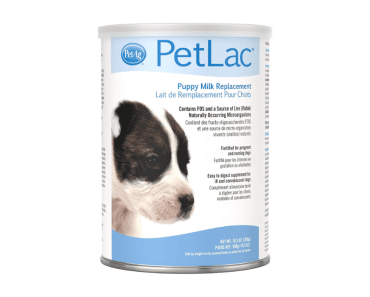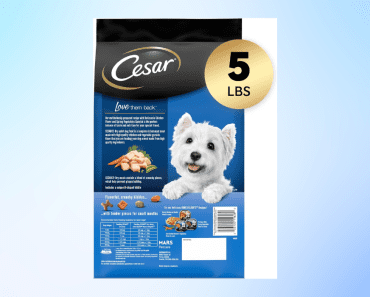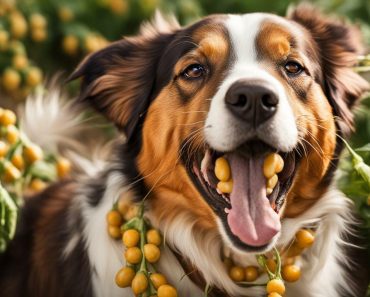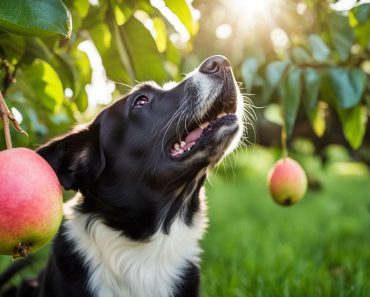As a responsible dog owner, I know how important it is to prioritize the health and safety of our furry friends. While many foods that are safe for us humans can be toxic and even deadly to dogs, it’s crucial to be aware of these dangerous foods to keep our canine companions safe and healthy. In this article, I will provide you with a comprehensive list of foods that are toxic to dogs, so you can ensure that you’re providing them with only dog-friendly and safe options.
Key Takeaways:
- There are several foods that are toxic to dogs and should be avoided.
- Chocolate, alcohol, avocado, onions and garlic, grapes, and raisins are among the most dangerous foods for dogs.
- Other foods to avoid include macadamia nuts, caffeine, xylitol, and raw meat and bones.
- These toxic foods can cause a range of health issues, from digestive upset to organ failure.
- It’s important to keep these foods out of your dog’s reach and consult your veterinarian with any concerns.
Foods that are Toxic to Dogs
When it comes to our furry friends, it’s essential to be mindful of what they eat. There are certain foods that are toxic to dogs and can have severe consequences on their health. To keep our dogs safe and healthy, it’s important to steer clear of these toxic foods.
- Chocolate: Chocolate contains theobromine, which is toxic to dogs. It can cause vomiting, diarrhea, abnormal heart rhythm, tremors, seizures, and even death.
- Alcohol: Alcohol can have similar effects on dogs as it does on humans. It can lead to liver damage, brain damage, and even death.
- Avocado: Avocado contains a substance called persin, which can be toxic to dogs and cause vomiting, diarrhea, and obstruction if the pit is ingested.
- Onions and Garlic: Onions and garlic contain compounds that can damage a dog’s red blood cells, leading to anemia. They should be avoided in all forms, including raw, cooked, and powdered.
- Grapes and Raisins: Grapes and raisins can cause kidney failure in dogs, even in small quantities. The exact reason is unknown, so it’s best to avoid feeding them to your furry friend.
- Macadamia Nuts: Macadamia nuts can cause weakness, tremors, vomiting, high body temperature, and even pancreatitis in dogs. Keep them away from your pet at all times.
- Caffeine: Caffeine, found in coffee, tea, chocolate, and energy drinks, can lead to increased heart rate, hyperactivity, seizures, and even death in dogs. Never let them indulge.
- Xylitol: Xylitol is a sugar substitute found in many products like gum, candy, baked goods, and even some peanut butter. It can cause a rapid drop in blood sugar levels and liver failure, so it’s crucial to keep it away from your pets.
- Raw Meat and Bones: Raw meat and bones can be hazardous to dogs as they may contain harmful bacteria like Salmonella or E. coli, leading to foodborne illness. Additionally, bones can splinter and cause choking, gastrointestinal blockage, or even perforation.
It is important to be mindful of these toxic foods and to keep them out of reach of our canine companions. By doing so, we can ensure their well-being and prevent any potential health issues.
Dangers of Chocolate, Alcohol, and Avocado
When it comes to foods that are dangerous for dogs, chocolate, alcohol, and avocado are three that pet owners should be especially cautious about.
Let’s start with chocolate. This sweet indulgence may be a favorite treat for humans, but it contains theobromine, a toxic substance for dogs. Ingesting chocolate can lead to a range of severe symptoms in dogs, including vomiting, diarrhea, heart problems, tremors, seizures, and even death.
Similarly, alcohol can have detrimental effects on dogs, just as it does on humans. It can cause liver and brain damage in dogs, and even a small amount can be harmful.
Avocado is another food that poses a risk to dogs. It contains a substance called persin, which can be toxic to them. If a dog ingests avocado, it can result in vomiting, diarrhea, and potentially fatal obstruction if the pit is consumed.
To ensure the well-being of your furry friend, it is crucial to keep these foods away from them. By avoiding chocolate, alcohol, and avocado, you can prevent any harm that these foods may cause to your beloved dog.
Onions, Garlic, Grapes, and Raisins
When it comes to feeding your dog, it’s essential to know which foods can be harmful. Onions and garlic, for instance, contain compounds that can damage a dog’s red blood cells, leading to anemia. This can cause weakness, fatigue, and even organ damage if left untreated. So, it’s best to avoid giving your furry friend any meals or treats that contain onions or garlic.
Grapes and raisins, while enjoyable for many humans, can be extremely toxic to dogs. Even consuming small amounts of grapes or raisins can lead to severe kidney failure in dogs. Symptoms include vomiting, diarrhea, and a lack of appetite. Therefore, it’s crucial to keep these types of fruits out of your dog’s reach at all times.
Remember, our loyal companions often share our meals, especially when those puppy-dog eyes come into play. But it’s important to prioritize their health and well-being by avoiding these toxic foods. Let’s keep our four-legged friends safe and happy!
- Onions and garlic can damage a dog’s red blood cells, causing anemia.
- Grapes and raisins can lead to kidney failure in dogs, even in small amounts.
Nuts, Caffeine, and Xylitol
Dogs are naturally curious creatures, and their noses can lead them to trouble, especially when it comes to certain foods. As a responsible pet owner, it’s crucial to be aware of the dangerous foods that can harm our furry friends. In this section, I will discuss the potential hazards of nuts, caffeine, and xylitol for dogs.
Nuts
While nuts may seem harmless to us, they can pose serious risks to our dogs. Macadamia nuts, in particular, contain a toxin that can cause weakness, tremors, vomiting, and even hyperthermia in dogs. It’s important to keep all nuts out of your dog’s reach to prevent any accidental ingestion or adverse reactions.
Caffeine
Caffeine is a stimulant that can have detrimental effects on dogs. Found in coffee, tea, chocolate, and energy drinks, caffeine can lead to a range of symptoms in dogs, including vomiting, diarrhea, increased heart rate, seizures, and even death. It’s crucial to keep all caffeine-containing products securely stored and away from your dog to avoid any potential hazards.
Xylitol
Xylitol is a sugar substitute commonly found in gum, candy, baked goods, and even some toothpaste. While it may be safe for humans, it is extremely toxic to dogs. Ingesting xylitol can cause a rapid release of insulin in dogs, leading to a severe drop in blood sugar levels and potentially resulting in liver failure. Make sure to keep all products containing xylitol out of your dog’s reach and consult your veterinarian immediately if you suspect ingestion.
By understanding the dangers of these foods, you can take the necessary precautions to keep your dog safe and healthy. Remember to keep all nuts, caffeine products, and xylitol-containing items securely stored out of your dog’s reach to prevent any accidents or potential health hazards. Your dog’s well-being is in your hands!
Raw Meat and Bones
Raw meat and bones can be dangerous for dogs and pose various food hazards. It’s important to understand the potential risks involved and take appropriate precautions to keep your furry friend safe.
One of the main concerns with raw meat and bones is the presence of harmful bacteria such as Salmonella and E. coli. These bacteria can lead to food poisoning not only in dogs but also in humans. Therefore, it’s crucial to ensure that any meat given to your dog is properly cooked to eliminate the risk of bacterial contamination.
In addition to bacterial contamination, bones can also pose a significant threat to your dog’s safety. They can cause choking and potentially injure your dog’s digestive tract if swallowed. As such, it’s best to avoid giving your dog any type of bones, including cooked bones.
To provide a safe and healthy diet for your dog, I recommend sticking to balanced commercial dog food that meets their nutritional needs. If you want to give your dog a meaty treat, make sure it is fully cooked and boneless. This way, you can minimize the risks associated with raw meat and bones.
Remember, the health and well-being of your furry companion should always be a top priority. By understanding and avoiding dangerous foods for dogs, such as raw meat and bones, you can ensure a safe and happy life for your four-legged friend.
Common Food Hazards and Safety Tips
In addition to the specific toxic foods mentioned above, there are other common food hazards for dogs that every pet owner should be aware of. These foods may not be as well-known for their dangers but can still pose a risk to your furry friend’s health.
Salty Foods
Excessive consumption of salty foods can lead to salt poisoning in dogs. This can cause symptoms such as excessive thirst, vomiting, diarrhea, tremors, seizures, and even death. Avoid giving your dog foods that are high in sodium, such as salty snacks, processed foods, or foods seasoned with a lot of salt.
Sugar
While a small amount of sugar may not be immediately harmful, frequent or excessive consumption can lead to weight gain, dental problems, and potentially more serious conditions such as diabetes. Keep your dog away from sugary snacks, desserts, and foods that contain added sugars, including some fruits.
Yeast Dough
Raw yeast dough can expand in a dog’s stomach and produce alcohol, leading to bloating, gas, stomach rupture, or alcohol poisoning. Make sure to keep yeast dough out of your dog’s reach and prevent them from consuming it while baking or preparing bread at home.
Certain Fruits with Seeds or Pits
Be cautious about giving your dog fruits with seeds or pits, as these can pose choking hazards and even cause intestinal blockages. Fruits like cherries, peaches, plums, and apricots should be pitted and the seeds removed before giving them to your dog. Always consult your veterinarian before introducing any new fruits into your dog’s diet.
Kitchen Ingredients
Some common kitchen ingredients, such as baking powder, baking soda, and certain spices, can be toxic to dogs in large quantities. Keep these ingredients securely stored away and avoid accidentally dropping or leaving them within your dog’s reach.
If you suspect that your dog has ingested something toxic, contact your veterinarian or an emergency clinic immediately. Acting quickly can make a significant difference in your dog’s outcome. Prevention is always the best approach when it comes to keeping your dog safe from harmful foods.
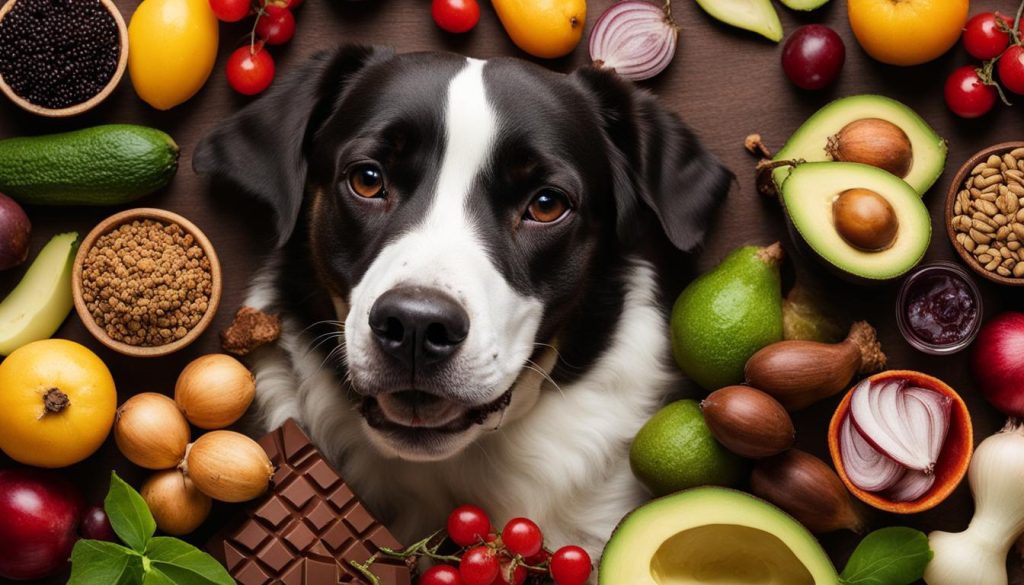
Remember, understanding and being aware of common food hazards is essential for ensuring your dog’s safety and wellbeing. By being mindful of the foods mentioned in previous sections, as well as these additional common hazards, you can help prevent your dog from falling ill or experiencing potentially life-threatening situations.
Conclusion
Ensuring the safety of your dog’s diet is crucial for their overall well-being. By following these dog food safety tips and avoiding foods toxic to dogs, you can protect your furry friend from potential harm.
Remember, not all human foods are safe for dogs, so it’s important to be cautious about what you feed them. Stick to a balanced, dog-friendly diet that includes high-quality commercial dog food and occasional dog-safe treats.
Some foods that make dogs sick, such as chocolate, alcohol, onion, garlic, grapes, raisins, nuts, caffeine, xylitol, and raw meat and bones, can have serious health consequences for your dog. It’s best to keep these toxic foods out of their reach.
If you have any questions or concerns about what foods are safe for your dog to consume, always consult with your veterinarian. They can provide personalized advice and recommendations based on your dog’s specific needs.
FAQ
What foods are toxic to dogs?
Certain human foods can be toxic and even deadly to dogs. These include chocolate, alcohol, avocado, onions and garlic, grapes and raisins, macadamia nuts, caffeine, xylitol, and raw meat and bones. It’s important to keep these foods away from your dog to prevent any harm.
Why is chocolate toxic to dogs?
Chocolate contains theobromine, which is toxic to dogs and can cause vomiting, diarrhea, heart problems, tremors, seizures, and even death. It’s best to keep all forms of chocolate away from your furry friend.
Can dogs eat alcohol?
No, alcohol can have a similar effect on dogs as it does on humans, leading to liver and brain damage. It’s important to keep all alcoholic beverages out of your dog’s reach.
Is avocado safe for dogs?
Avocado contains persin, which can cause vomiting, diarrhea, and potentially fatal obstruction if the pit is ingested. It’s best to keep avocados away from your dog to avoid any potential health issues.
Can dogs eat onions and garlic?
Onions and garlic contain compounds that can damage a dog’s red blood cells, leading to anemia. It’s crucial to keep foods seasoned with onions and garlic away from your dog.
Are grapes and raisins safe for dogs?
No, grapes and raisins can cause kidney failure in dogs, even in small amounts. It’s important to keep all grapes and raisins out of your dog’s reach.
What should I do if my dog eats nuts or drinks caffeine?
Nuts, such as macadamia nuts, can cause weakness, tremors, vomiting, and hyperthermia in dogs. Caffeine, found in coffee, tea, chocolate, and energy drinks, can lead to vomiting, diarrhea, seizures, and even death. If your dog ingests nuts or caffeine, contact your veterinarian immediately.
Is xylitol dangerous for dogs?
Yes, xylitol, a sweetener commonly found in gum, candy, and baked goods, can cause insulin release, leading to liver failure in dogs. It’s important to keep any products containing xylitol away from your dog.
Why should I avoid feeding my dog raw meat and bones?
Raw meat and bones can contain harmful bacteria such as Salmonella and E. coli, which can cause food poisoning in dogs and humans. Additionally, bones can pose a choking hazard and potentially cause serious injuries to your dog’s digestive tract. It’s best to only feed your dog properly cooked meat and avoid giving them bones.
What are some other common food hazards for dogs?
In addition to the specific toxic foods mentioned above, other common food hazards for dogs include salty foods, sugar, yeast dough, certain fruits with seeds or pits, as well as kitchen ingredients like baking powder, baking soda, and spices. It’s crucial to keep these foods out of your dog’s reach and contact your veterinarian or an emergency clinic if you suspect your dog has ingested something toxic.
How can I ensure the safety of my dog’s diet?
To ensure the safety of your dog’s diet, it’s important to avoid toxic foods and provide a balanced, vet-recommended diet. Remember to always consult your veterinarian if you have any questions or concerns about what foods are safe for your dog to consume.

